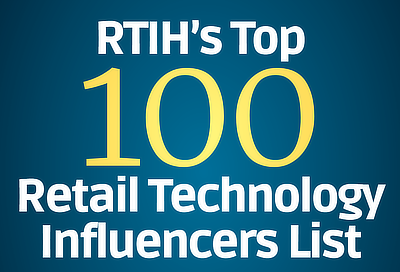Loss Prevention Research Council Weekly Series - Episode 91 - Global Retail Development Index and AI Retail Trends
With Dr. Read Hayes, Tony D'Onofrio, and Tom Meehan

LPRC IGNITE is next week on Feb 15th to the 16th! COVID-19 brings Innovation to Vaccines! In this week’s episode, our co-hosts discuss two new LPRC Team members join the group, AI Machine Learning is growing, App Purchase Numbers are Explored, QR Codes can at times contain malware, and Civil Unrest Sprung up Over the Weekend.
Listen in to stay updated on hot topics in the industry and more!
USA Social Commerce Habits in 2022
https://infographicjournal.com/us-social-commerce-habits-in-2022/
From Infographic Journal, here is a summary on the growing USA trends with social commerce.
Social commerce is the process of buying products directly in-app without leaving the social media network.
Interesting questions that were asked:
- Have you ever discovered a product on social media and purchased it directly on the phone? 82% said yes and 18% said no.
- 57% bought something while watching a live stream on a social on a social media app
- 72% rated livestream shopping a 9 or 10 out of 10.
- 29% buy something via social commerce at least once a week
- 22% buy mostly apparel and 15% buy beauty products
- 76% bought at least one item on social media during the 2021 holidays
- eMarketer forecasted that in 2021, USA social commerce sales would rise by nearly 36% to $37 billion and the number of USA social commerce buyers will increase to 96 million in 2022
- Despite strong growth, the USA social commerce market is about one-tenth the size of China which was valued at $351 billion in 2021
- Total USA retail social commerce sales will reach nearly $80 billion by 2025
The 2022 Global Retail Development Index – Leapfrogging into the future of retail
https://www.kearney.com/global-retail-development-index/2021
A report that I have tracked every year is from AT Kearny and it is called the global retail development index. Every year this report summarizes the key countries around the world where global retailers should expand operations.
So, what should we take from the 2021 GRDI report?
First—in crucial markets in Latin America, the Middle East, and Africa—fossil fuel-dependent governments are increasingly turning to retail to diversify their economies and wean them away from oil dependency.
Second, it is vital to remember that emerging nations can simultaneously occupy multiple positions on the window of opportunity chart. There is a significant difference between urban and rural China and India, so much so that we are well advised to think of them as not one market but two or three, each at a different stages of development.
Third, understanding consumer attitudes, situations, and dynamics is the basis of all retail success and the world’s consumer spending center of gravity is slowly shifting from the US and developed European markets to emerging markets in Asia, Africa, and the Middle East. This won’t happen overnight but—so far at least—that is where the arc of commercial history seems to be bending.
Fourth, the pace of this development is directly linked to the innovation, penetration, and acceptance of consumer and retail technologies, from simple mobile phone connectivity to sophisticated and secure electronic payment systems.
Finally, the real lesson is that all things, especially markets, change—often, as in the case of COVID-19, with little or no warning. So there is no effective substitute for contemporaneous in-market knowledge.
CSA Exclusive: Retailers prioritize AI across the enterprise
https://chainstoreage.com/csa-exclusive-retailers-prioritize-ai-across-enterprise
New survey results exclusively released to Chain Store Age reveal just how important retailers view artificial intelligence (AI) and machine learning (ML).
About two-thirds (65%) of retail respondents said AI and ML are technologies that are among the most mission-critical to their business strategy. This led other technology areas such as cybersecurity (63%), cloud computing (60%), data science (57%), and e-commerce (53%)
Almost six in 10 (58%) respondents in the retail space said AI/ML technologies are a high priority for their industry. More than seven in 10 said AI/ML has had a positive impact on revenue generation (72%) and on expense reduction (72%), while 69% reported AI/ML has had a positive impact of on brand awareness, and 67% said these technologies have had a positive impact on brand reputation.
Three-quarters of respondents in retail say they are employing AI/ML as part of their business strategy, IT strategy or both; while 68% of retail respondents are allocating between 6% and 10% of their budget to AI/ML projects. This compares to a reported spend (as a percentage of overall budget) of between 1% and 10% in the 2020 edition of the survey.
AI/ML projects are accelerating in the retail sector
The survey reveals that AI/ML solutions are being used by retailers in an increasingly wide variety of contexts, including improving the speed and efficiency of processes (47%), personalizing content and understanding customers (43%), understanding marketing effectiveness (42%), gaining competitive edge (42%), increasing revenue (41%), and predicting performance (32%).
As an indication of the increasing maturity of the technologies, 66% of retail respondents said their AI/ML projects have gone past the experimentation stage and are now either in the "optimizing/innovating" or "formalizing" states of implementation. The survey additionally shows that most organizations are also citing a wider range of use cases, including computer vision applications, automated content moderation, customer relationship management, and biomedical applications.
34% of retail respondents cite difficulties aligning AI/ML strategies to the business.
From a talent perspective, more than six in 10 (61%) retail respondents said they have necessary AI/ML skills within their organization. At the same time, more than half of all respondents say that bolstering internal skills/hired talent and improving both internal and external training are on their agenda.
















